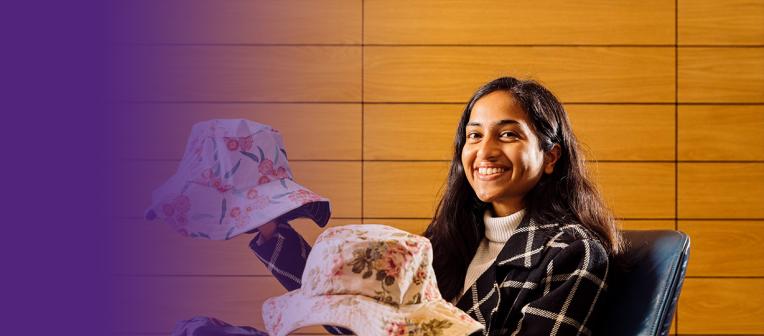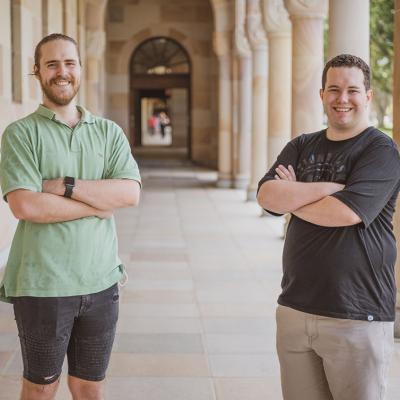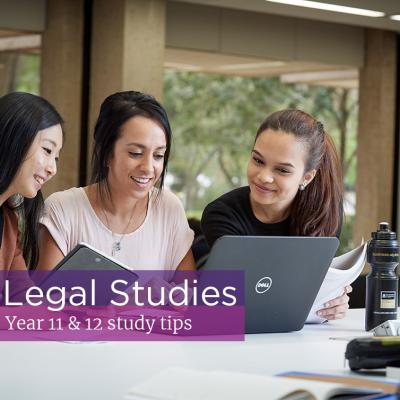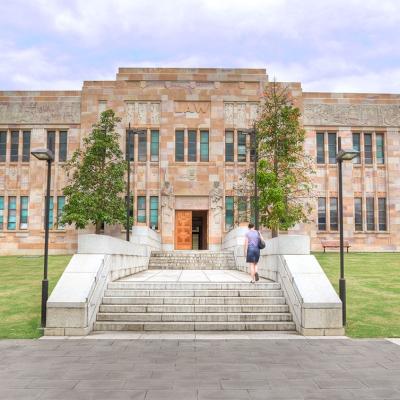A law degree can take you almost anywhere in modern Australia. For Famin Ahmed, it has helped fulfil a passion for social justice as a pro bono and community investment lawyer.
Famin graduated with a Bachelor of Arts / Bachelor of Laws from The University of Queensland (UQ) in 2019. Now, she is a full-time lawyer in the Pro Bono and Community Investment team at one of the country's biggest law firms, MinterEllison which, through its Pro Bono and Community Investment Program, provides free legal and non-legal services to members of the community who otherwise might not get the representation they need or the justice they deserve.
As a child of Bangladeshi migrants, she says studying law at a top Australian university was a privilege few received, so it was important to her to use the skills she has gained to help those less fortunate.
"Coming from a family of immigrants, especially from a country where not everyone is quite so blessed, it was always ingrained in me that we should never forget how lucky we are," she says.
"It was often the simple things, like if we didn't finish the food we were given for dinner, my mum would remind us to think about the people who didn’t have anything to eat. It meant that I was very conscious of my privilege, and now I automatically think of people less fortunate than me."
Sewing support for domestic violence
Famin's day job as a lawyer supporting the vulnerable is just one part of her purpose-led life. Another is running her own social enterprise project.
The project began after she graduated from UQ and had a 6-month break before starting her working career as an associate to a High Court Justice.
"I was graduating in July and wasn't going to start work until January of the next year," she says.
"So, I had a 6-month break in between. At that time, a lot of my friends were travelling, but I had to stay home to look after my mum and sister because my home situation wasn't great.
"I was worried I might be bored for the 6 months, so I wanted something to do. I've always liked sewing, so I thought of this concept where I would sew and donate the proceeds to charity.”
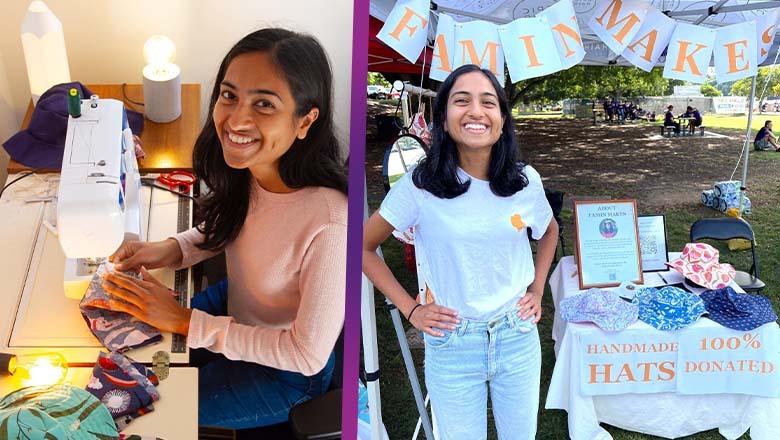
Famin created Famin Makes and decided to raise funds for the Women's Legal Service Queensland, which provides free legal advice to women facing domestic violence, after approaching the organisation herself and being turned away due to a lack of resources.
"When thinking about which charity to choose, I thought back to when I tried to get legal advice for some domestic violence happening in my own house," she says.
"We got there 15 minutes after a free drop-in advice session had started, and we were turned away. We were the seventh group of women turned away. One woman who was turned away in front of us burst into tears.”
Famin sews reversible hats, sells them, and donates 100% of the money to the service. So far, she has raised more than $64,000 and used her platform to raise awareness about domestic violence.
Choosing to study law
Like many young adults nearing the end of high school, Famin was unsure what she wanted to do as a career but was leaning towards psychology or law.
"I knew I liked helping people but didn't know exactly how to turn that desire into a career," she says.
"Ultimately, it was the human rights aspects of law that tipped me in that direction, and I ended up doing a dual law and arts degree."
She found university was a life-changing experience that brought about a new set of hobbies, new friendships and the first opportunities to put her passion for helping people into action.
"There was plenty of study and exams were hard, but what I remember most is all the fun I had with my friends, just hanging out in the Great Court during breaks and meeting new people," she says.
It wasn't just her studies that Famin threw her energies into; she also joined several clubs and societies that became a conduit for her desire to help people, including being President of the UQ Refugee Tutoring Club.
"I found out about this club that basically runs free tutoring sessions for refugee students around Brisbane ... it was a fantastic introduction to how easy it is to help people by using the skills we take for granted," she says.
"We are fortunate to have grown up in a country where we can go to school for free and learn skills. For me, it's important to use those skills to help people that are not as fortunate as us through no fault of their own. It's about balancing the imbalance, and the tutoring club really opened my eyes to how much of a difference you can make."
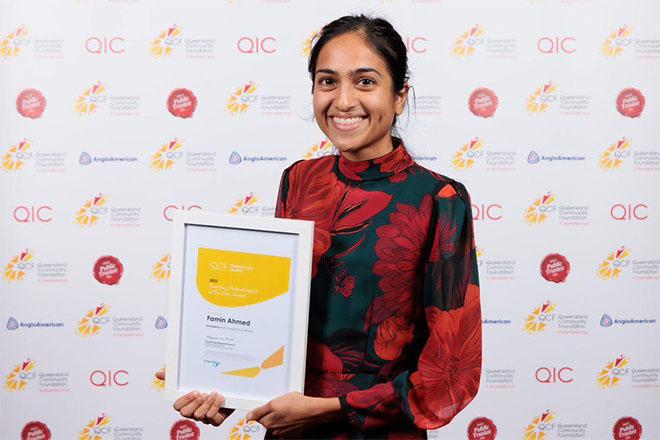
The pro bono life
It was during her time at UQ that Famin also had her first experience with how lawyers can use their training and experience to provide free legal support to those in need by joining the roster of UQ’s Pro Bono Centre.
The Centre is the only resource of its kind in an Australian law school. It provides students with the opportunity to gain valuable legal experience while giving back to the community by working with partners to support their legal needs.
The Pro Bono Centre partners come from a diverse range of industries, including Community Legal Centres, non-legal charities and not-for-profits, the Judiciary, religious organisations, statutory agencies, the private sector and the UQ community generally.
This means that law students at UQ can apply for and support areas of the law or community that align with their values, interests or curiosity.
Famin says joining the roster of students prepared to offer their services allowed her to gain valuable work experience and build up her connections in the industry.
"I got to work on a couple of transformative projects, including one where we helped draft a guide for lawyers defending women who are victims of domestic violence and end up killing their partner in self-defence," she says.
This first taste of pro bono legal work set her up on the path to eventually landing a role as a lawyer in MinterEllison's Pro Bono and Community Investment Team, after completing rotations in commercial teams at the firm.
The firm's Pro Bono and Community Investment Program focuses on areas of complex social challenges, including:
- supporting people experiencing or at risk of homelessness
- addressing the complexities of domestic and family violence
- empowering young people
- working with social enterprises to develop sustainable business
- supporting First Nations communities
- increasing access to justice.
Famin's role is to generate projects for lawyers and non-legal staff to contribute their skills to support the firm's priorities.
"In my role, my team and I partner with community organisations to find out what people need on the ground and then bring that knowledge back and create projects where lawyers and non-legal staff in our office can use their skills to help people," she says.
"It's not a traditional role in a big law firm, but it is very rewarding, and I love what I do."
See where a law degree could take your career
Image credit: The photo at the top of this article was taken by Joe Ruckli

